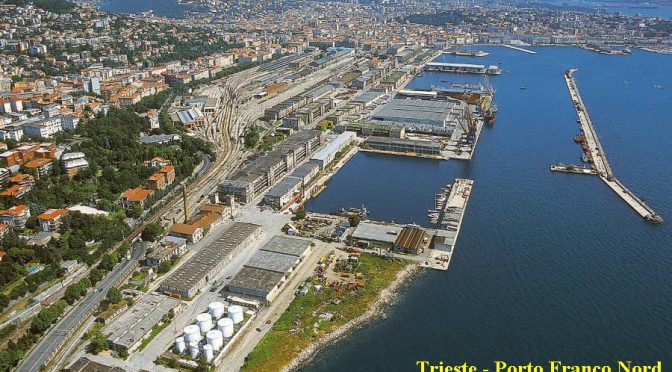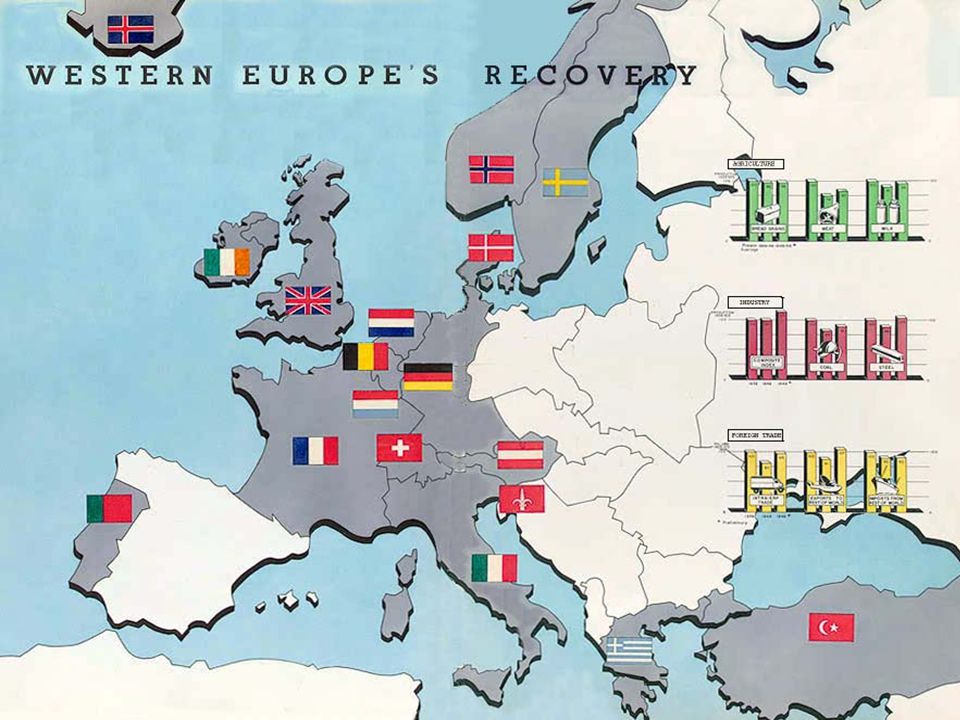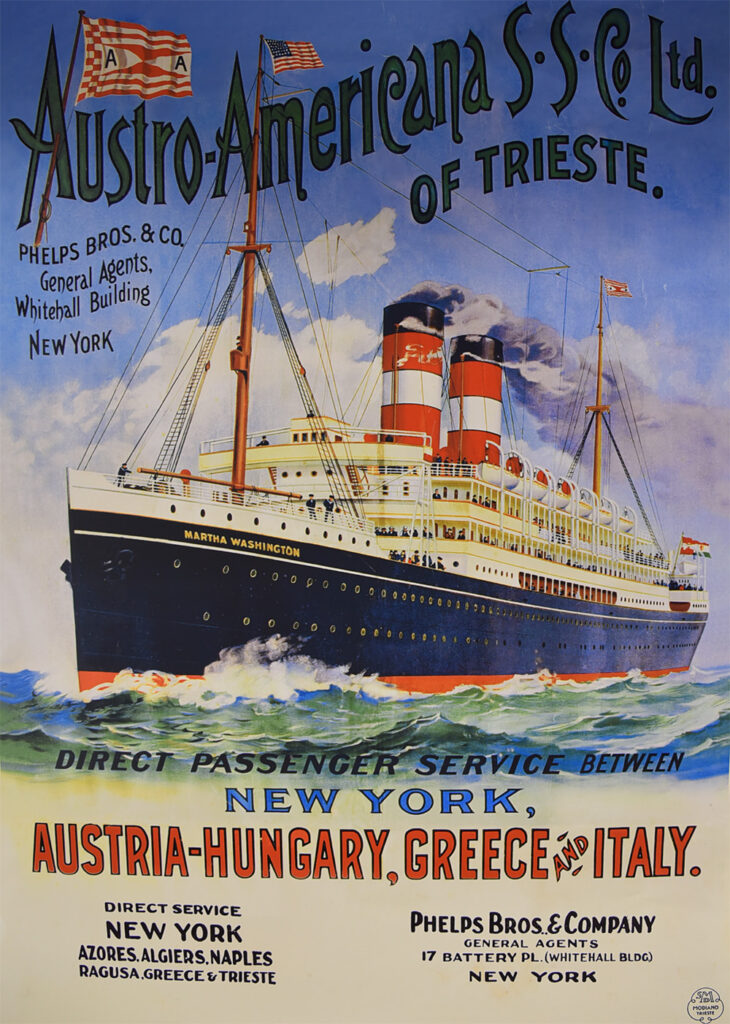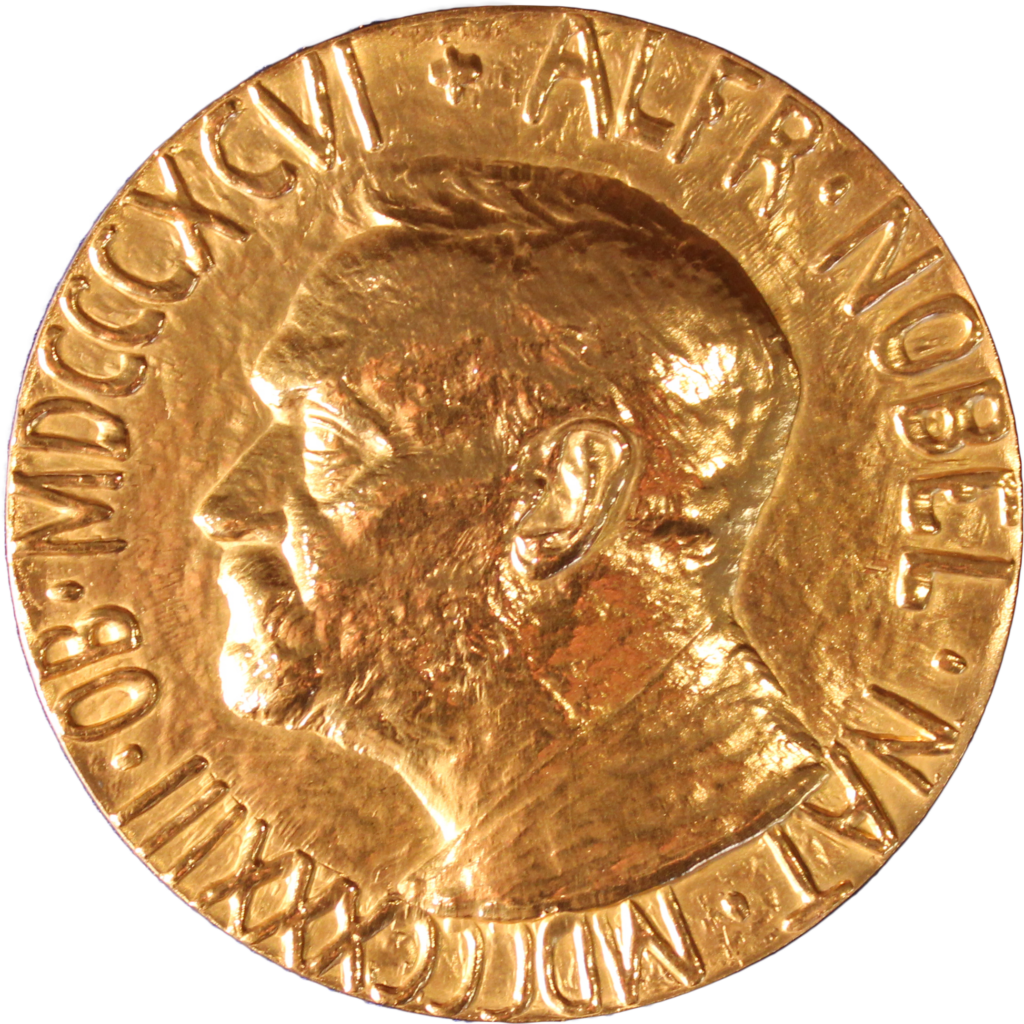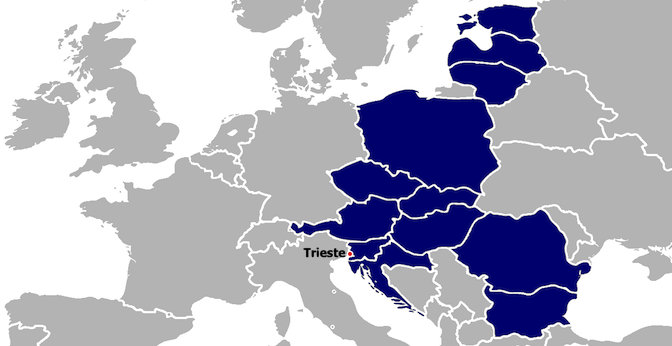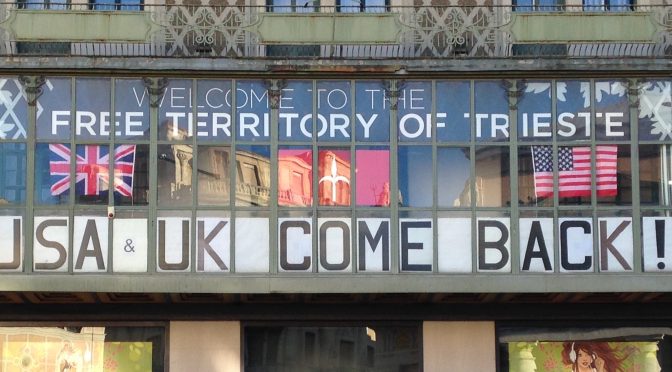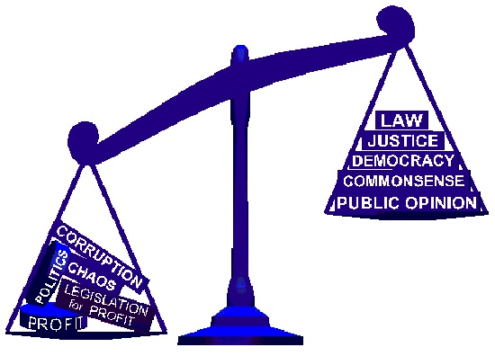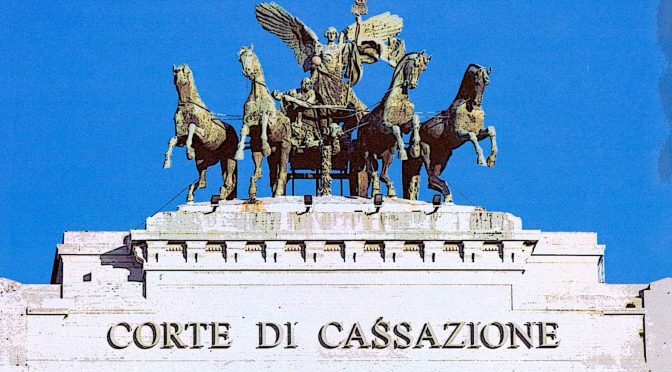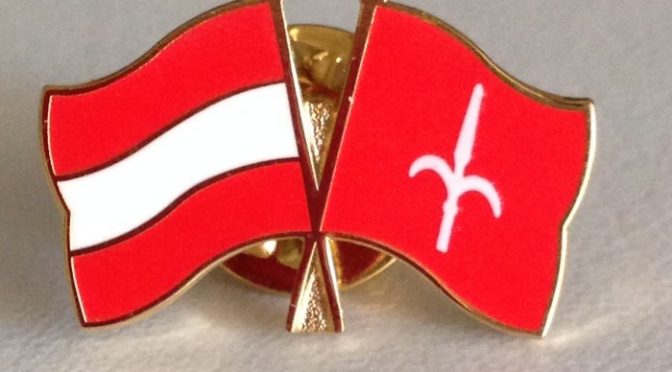Analysis by Paolo G. Parovel, English version by Silvia Verdoljak. Il Corriere di Trieste 11/12/2024
Trieste, 11 December 2024 – With a writ of appeal that also seeks the cases’ referral to the European Court of Justice, the Agency I.P.R. F.T.T. – International Provisional Representative of the Free Territory of Trieste impugned before the Italian Supreme Court of Cassation, requesting also a mandatory, preliminary ruling of the Court of Justice of the European Union, a judgment with a panel of the Trieste Court of Appeal refused to assess and enforce Italian upper-ranking laws in force that establish the Italian Republic and the Italian Government’s obligations regarding the international Free Port of Trieste. The subject has strategic relevance, and the lawsuit is supported by 238 citizens, residents, and enterprises from Trieste and other States.
The writ of appeal versus that judgment, lodged on 8 November, was notified on 19 October to all the defendants: the Italian Government, two of its Ministries (Infrastructure and Transport, Economy and Finance) its State Property Agency, two of its officers in Trieste (Commissioner of the Government and Prefect) three local authorities (Region Friuli Venezia Giulia, Municipality of Trieste, Port Authority) and a regional bank involved in the dispute (Banca di Cividale).
The main reasons for the impugnation are the omission of a decision on decisive facts and the complete breach of the fundamental provisions of law of the Italian Constitutional framework, of European Union law, and of the Rules-Based International Order that grant the right of every individual that judges fairly examine their cases and adjudicate their civil rights and obligations independently and impartially.
The violation of laws, international obligations, and the rights of all States.
The lawsuit regards the actions of bodies and officers of the Italian administration of Trieste, which are committing severe violations of the laws with which the Italian Republic and the Italian Government recognize their obligations towards Trieste and its international Free Port in compliance with the 1947 Treaty of Peace with Italy, with a 1954 Memorandum of Understanding, and with a coherent and univocal corpus juris. (LINK).
Indeed, it is binding instruments in force within the UN framework, which are fully enforced in the Italian legal order with a pre-constitutional and Constitutional rank superior to that of any other Italian law in force, they are recognized by the European Union, and have been confirmed by the Italian Parliament and by the Italian Government with recent measures regarding the management of the international Free Port of Trieste (2017) and customs (2024).
The violations manifestly committed by bodies and officers of the same Government that are in charge of the Italian administration of Trieste may therefore be interpreted as a double game of the Italian Government involving the respect of those international obligations.
The same violations may also be interpreted as a particularly severe example of the corruption of that administration’s public bodies, including sectors of the judiciary, in the terms and for the facts that we have already detailed and documented in our latest investigation-complaint (LINK).
That so far this situation has been favored or tolerated by Italian left-wing, center, and right-wing parties and Governments does also reveal that it is organized “across the board” by powers that illegally interfere with the functions of Constitutional bodies and public authorities of the Italian State.
However, it would be a mistake to consider this as merely an internal case of corruption of the Italian constitutional democracy.
That is not what it is, because the violations in question regard the management of the international Free Port of Trieste and the rights of all States over it, and are being committed by a State that belongs to the United Nations, the European Union, and NATO.
Strategic relevance of those violations.
It is evident that the problem has strategic relevance, because the management of the international Free Port of Trieste, be it fair or unfair, can influence international trade with the States of Central-Eastern Europe, and therefore their economic and political balances.
Indeed, the international Free Port of Trieste is a special economic instrument established by the United Nations after World War II to support impartially the balanced development of trades across the Mediterranean, Suez, Gibraltar, and the States of Central-Eastern Europe.
To do so, the regime of the international Free Port of Trieste allows the loading, discharging, trade, and manufacturing of freight from all States, without taxes, and enjoying unrestricted freedom of transit through the terrestrial and maritime borders of other States.
Furthermore, the extraordinary legal and economic advantages of the international Free Port of Trieste are not subject to prohibitions or limitations by the European Union, which, ever since 1958 recognizes them in force, upper-ranking, and binding even within Community law.
The provisions of the Treaty of Peace grant the balanced management of those advantages with a specific International Commission and forbidding the establishment of special zones under the exclusive jurisdiction of any State within the international Free Port of Trieste.
The effective operativeness of the international Free Port of Trieste is further ensured by two wide permanent free zones (the Northern Free Port, also “old port” and the Southern Free Port, also “new port”) which can be increased, cannot be reduced, and have their own interconnected railways, which also connect to European railroads.
The strategic role of the international Free Port of Trieste towards Central-Eastern Europe has remained underused from 1947 to the end of the cold war (1991) and of the Yugoslav wars (1991-2001). However, starting in 2014, its strategic function has become essential for the development of the Three Seas Initiative (Baltic, Adriatic, and the Black Sea) supported by the US and reinforced by the climate forecast on the accessibility of the Arctic Route to the Pacific.
The Three Seas Initiative is one of the two fundamental, parallel initiatives for peace that the US promoted in Europe and in the Middle East, where they promoted the Abraham Accords (LINK). Both initiatives are ongoing, despite being slowed down, one with the war along the Russian-Ukrainian border, and the other with the war triggered by Hamas terrorists against Israel.
The purpose of the Three Seas Initiative is promoting the stabilization and independence of Central-Eastern Europe with the comprehensive economic and political consolidation of its people and States within the frameworks of the European Union and of the Atlantic Alliance.
Indeed, the problem of Central-Eastern Europe’s instability has remained unresolved since 1918, when the sovranational Habsbourg Monarchy (which included Trieste) was fragmented into weak national States, which from 1939 to 1945 ended up influenced and then overwhelmed by the genocidal Nazi Germany and its allies (including Italy) and then ultimately occupied by the Soviet Union until 1989-1990, with the only exceptions of Austria and Yugoslavia.
However, the violent dissolution of Yugoslavia between 1991 and 2001 has left relevant hotbeds of political-military and economic instability on the Adriatic side of the Western Balkans.
Even the successive, gradual integration of those States within the European Union proved insufficient to strengthen their economic and political defenses from the prevailing interests of the strong Central and Western European States (Germany, Italy, France, Spain) from the aggressive penetration, direct and indirect, of Communist China against the US.
As for the Western Balkans, the possibility to favor their political and economic stabilization using, with new agreements, the provisions of the 1947 Treaty of Peace with Italy regarding the international Free Port of Trieste was not activated.
Indeed, those provisions can be enforced to open new free zones of the international Free Port of Trieste in the strategic ports of Slovenia (Koper) and of Croatia (Rijeka and Ploče, which serves Bosnia-Herzegovina).
And it is in this strategic framework that the bodies and officers of the Italian administration of Trieste openly refuse to enforce the legal obligations of the Italian State and of the Italian Government on the management of the international Free Port of Trieste, and outright violate them, favoring the competition of Italian ports, the interests and operations of Communist China in Europe, and economic agreements with the dictatorships of Iran and Venezuela.
It results that all the agreements on the matter concluded or attempted between bodies and officers of the Italian administration and enterprises of these three States, or controlled by them, go against the legal obligations of the Italian State and of the Italian Government on the management of the international Free Port of Trieste.
In consideration of this, it is evident that to defend and develop the Euro-Atlantic strategic balances of Central-Eastern Europe it is necessary re-establishing the correct management of the international Free Port of Trieste, ending the violations of the relevant obligations of the Italian State and of its Government as soon as possible.
The instruments to settle the dispute.
The fastest and most effective remedies to the problem belong to the field of international political and diplomatic relations, and in particular to the relations of Italy with the United States, as it has already happened when the Italian oppositions to Slovenia’s EU accession were unlocked after the 12 June 1996 Clinton-Prodi meeting.
The Department of State preserves memory of that operation, which was planned by the Bush Sr. and Clinton Administrations, because Italian claims against Slovenia and Croatia were coordinated with others aiming to destabilize Central-Eastern Europe, from the Baltic to the Balkans.
Still, now as then, the Italian Government does not only have the duty to comply with its international obligations, but also the Constitutional authority it needs to force its bodies and officers in charge of administering Trieste to comply with the law, and to substitute them if deemed necessary.
The Treaty of Peace with Italy in force does also assign the protection of the rights and obligations regarding Trieste and its international Free Port to the UN Security Council, and, on its behalf, to the Governments of the US and the UK, which for this purpose have received a special trusteeship mandate, which in 1954 they have sub-entrusted to the responsibility of the Italian Government (not to the Italian State) for matters relating to civilian administration, and to NATO for the purposes of military defense.
The direct legal defense of the international Free Port of Trieste does instead require a choice among the instruments for the settlement of disputes provided by the Italian, European, and international legal order.
Choosing among legal instruments.
The violations of law committed in the management of the international Free Port by bodies and officers of the Italian administration regard international obligations and the rights of all States over it.
The pertinent legal instruments that can be invoked to obtain compliance with those international obligations and rights do therefore include both the appropriate arbitration procedures included in the 1947 Treaty of Peace with Italy, and appeals before the competent international and EU Courts.
However, since the violations in question are being committed by bodies and officers of the Italian Republic, and as such are subject to the Italian legal order, which establishes the independence of the judiciary from any other power as well as binding judges to know and enforce the law impartially, in adherence to the hierarchy of the sources of law.
Indeed, Italian judges cannot derogate from their obligations when it comes to demonstrating domestic laws regarding the Italian State and the Italian Government’s international obligations, not even for breaches of law that are committed by public officers or political authorities.
Because of this, the simplest legal defense is addressing the Constitutionally enshrined competences of Italian judges to know and enforce the upper-ranking provisions of the Italian legal order in force, impartially and independently from any political authority, even when it comes to this subject, and to declare the legal unenforceability and inapplicability of the acts and measures that go against them.
This means that addressing international or EU Courts would only be necessary if all Italian judges addressed seeking the impartial demonstration and enforcement of the relevant upper-ranking Italian laws in force, and to put an end to their violation, refused to do so.
The Italian judges’ complete denial of justice.
The idea that all Italian judges seized with the matter refuse to decide about it may sound absurd, because it would constitute a complete denial of justice, which as such would constitute a breach of rights and fundamental principles recognized by the Italian, EU, and international legal order.
However, this absurd possibility has been occurring since 2018 (for six years) before all three instances of Italian civil Courts.
Indeed, from 2017 to 2019, the I.P.R. F.T.T., with the support of hundreds of citizens, residents, and enterprises from Trieste and other States, initiated three civil lawsuits before the Court of Trieste, requesting Italian judges to assess and enforce the Italian laws in force on the matter.
The first (LINK) and the second lawsuit (LINK) dispute violations of Trieste’s rights on taxation and budgets (since 1947, Trieste is also exempted from the payment of the Italian public debt), while the third lawsuit challenges violations of the obligations and rights regarding the international Free Port. The three lawsuits are all perfectly grounded and documented in fact and law.
However, facing the evidence of the objective legal fact that upper-ranking laws in force within the Italian legal order fully confirm the international obligations that are being violated by bodies and officers of the Italian administration of Trieste, so far all judges seized with demonstrating and enforcing those laws have refused to do so (falsely) claiming that they cannot put into question decisions made by political authorities.
This is why all of them, in agreement, declared that on this subject there is an absolute lack of jurisdiction of any Italian Court. However, if this were true, it would mean that the Italian legal order is dictatorial because it would not protect individuals and enterprises from abuses committed by State authorities.
Furthermore, since it is impossible to find a legal base for a judge’s denial to demonstrate and enforce the law, those judges have instead invoked previous decisions to support their denial. This, however, constitutes a radical violation of the Italian civil law system, which relies on the application of the law and doesn’t regard judgments as sources of law (unlike the Anglo-Saxon common law systems).
The evident lack of foundation of those declarations of absolute lack of jurisdiction does therefore add to the violations of international obligations and of rights committed by the other bodies and officers of the Italian administration of Trieste, also the total denial of justice committed by the judiciary of the same Administration, despite its obligation to safeguard the law.
The lawsuit about the international Free Port.
The I.P.R. F.T.T. initiated the lawsuit about the international Free Port in 2019, facing the aggravation of two illegal operations with which bodies and officers of the Italian administration of Trieste have caused severe economic damages and strategic risks.
The first of these illegal operations is a massive public fraud, organized to dismember and sell off, directly or through third parties, the assets of the Northern Free Port of Trieste to any interested buyer, including funds and enterprises that either belong to or are controlled by Communist China (LINK).
The second illegal operation is the attempt to assign direct or indirect State-run enterprises of the Chinese Communist Party logistic control of the international Free Port (LINK).
Both illegal operations have also been preceded by the initiation of illegal preferential agreements regarding the international Free Port with sanctioned companies of Iran for freight traffic (LINK) and of Venezuela for the manufacturing of Coltan (LINK).
The first instance of judgment before the Court of Trieste lasted four years, during which the sole judge was changed three times, and in 2020 the sole judge refused to suspend the denounced illegal operations, while in 2023 she ruled against the demonstration of the laws in force, declaring the absolute lack of jurisdiction of any Italian Court on the subject.
The I.P.R. F.T.T. has therefore challenged that judgment before the Court of Appeal of Trieste. However, after one more year, the three judges of the appellate panel issued a ruling that is even more absurd, confirming the judgment of first instance, and therefore violating the fundamental principles of the Italian, EU, and international legal order as for the right to justice.
It is the principles established by the Italian Constitution, the EU Treaties, and the international legal order that protect the right of every person whose rights have been violated to an effective remedy before an independent and impartial tribunal, as well as the obligation of judges to fairly examine their cases and adjudicate their civil rights and obligations independently and impartially.
Other complicities of the judiciary.
When it comes to the Italian laws in force that recognize and implement legal obligations regarding Trieste and its international Free Port, the refusal of Italian Courts to demonstrate and enforce them results also in the continuation and factual consolidation of the violations committed by the other bodies of the Italian administration, therefore making also the civil branch of the judiciary an accomplice by either action or inaction.
The same complicities have been taking place since 2016 (so far for eight years), carried out always by some of the civil judges serving their duties in Trieste, in particular in the keeping the Land Registry Book, and specifically with the illegitimate assignation of the ownership of assets of the Northern Free Port in the name of the Municipality of Trieste, the registration of its contracts, and of its illegitimate sales to third parties, all in spite of the constant opposition of the I.P.R. F.T.T. with the appropriate legal actions, as already denounced in our investigations.
Our investigations have also documented and denounced that, at the same time, the offices of criminal justice and of the auditors serving in Trieste refused or failed to carry out investigations on the matter.
Indeed, ever since 2008, numerous criminal complaints have been lodged against those responsible of the aforementioned violations, two of which did even disappear after being lodged at the Prosecution Office, while the remaining ones were all filed without investigations; even appeals to the Court of Auditors for the losses to the public purse, despite the amounts lost being rather significant (LINK).
Finally, when it comes to administrative Courts in Trieste, the TAR FVG (Regional Administrative Court for Friuli Venezia Giulia) attempted to legitimize these violations of the Italian legal obligations over the international Free Port with a decision built entirely for that purpose with political falsifications of the relevant instruments of international law (LINK).
Essentially, it is perfectly documented how, with the aforementioned behaviors, the judicial bodies of the Italian administration of Trieste have been granting for 16 years (2008-2024) to the other bodies and officers of the same administration total impunity for an escalation of violations of both Italian laws and the international obligations regarding the international Free Port of Trieste and the rights of all States over it.
Powers across the board.
Italian judges, however, are career magistrates with a strong ethical and legal preparation, and they have the duty of granting impartially and independently from political authorities, the enforcement of laws in force. This means it is not credible that all of them refuse, by mistake or deliberately, to breach their obligations when it comes to laws regarding Trieste and its international Free Port.
Indeed, this abnormal behavior of the judiciary is only possible if the violations of law that they should prevent are organized and protected “across the board” by powers that can illegally influence for their own gain even the outcome of the decisions adopted by the judiciary, which should instead protect the law and remedy to the violation of rights.
When it comes to the obligations and rights over the international Free Port of Trieste, it is also evident that judgments obtained with such interferences have the purpose and the effect of allowing the undisturbed violations that favor, in particular, political interests of Italian parties, economic interests of competing Italian ports, and strategic interests of Communist China towards the States of Central-Eastern Europe.
Legal effects of the denial of justice.
Contrary to what people are led to believe, the unfavorable judgments of those civil, criminal, and administrative Italian Courts are not sources of law and cannot affect the international obligations of the Italian Republic and of the Italian Government regarding the administration of Trieste and of its international Free Port.
Indeed, no domestic judge can void or amend obligations and rights that are established with international legal instruments in force, signed and ratified by their State, and fully implemented in its domestic legal order with primacy over any other law in force.
The choice of Italian civil judges to declare the absolute lack of jurisdiction to not demonstrate and enforce the laws in force regarding the administration of Trieste and of its international Free Port may also paradoxically favor a positive settlement of the dispute.
Indeed, that choice is directly impugnable before the Italian Supreme Court of Cassation, with a mandatory petition for a preliminary ruling of the Court of Justice of the European Union on the violation of the principles of the rule of law on matters of justice that are fundamental in both the Constitutional legal order of the Italian Republic and in the Treaties establishing the European Union.
The appeal to the Supreme Court of Cassation.
This is why the I.P.R .F.T.T. has taken care of denouncing this violation also in its appeal seeking the annulment of the judgment of second instance about the international Free Port of Trieste, which it notified to the defendants on October 19th and is pending before the Italian Court of Cassation since November 8th and includes a request for the referral of the case to the Court of Justice of the European Union for a preliminary ruling.
To ultimately clarify the matter, we are publishing (HERE) the part of the appeal detailing the grounds and requests.
The implications of an eventual denial.
Since the upholding of this appeal would logically overturn every judgment akin to the impugned one, we cannot rule out that the Italian Supreme Court of Cassation would rather reject it or rule it inadmissible, and find a way to avoid the mandatory referral for a preliminary ruling of the Court of Justice of the European Union.
In each of these events, the resulting decision can be impugned before the Court of Justice of the European Union directly and before other international Courts, and it may also be used to invoke the arbitration procedures established by the 1947 Treaty of Peace with Italy, which is in force and fully ratified and enforced within the legal order of the Italian Republic and confirmed as binding by EU Treaties.
Furthermore, a negative decision of the Supreme Court would confirm to international observers that the violations of the obligations and rights over the international Free Port of Trieste are organized and protected by a system of corruption to influential that it can deactivate all of the Constitutional guarantees on law and justice within the legal order of the Italian Republic, and also become a risk for Euro-Atlantic strategic balances.
Supporting the lawsuits promoted by the I.P.R. F.T.T.
The I.P.R. F.T.T. – International Provisional Representative of the Free Territory of Trieste is an Agency for representation that acts upon delegation defending the legitimate interests of citizens, residents, enterprises, and organizations of the of the present-day Free Territory of Trieste under the Italian Government’s administration, and of other States before all institutional, diplomatic, and judicial authorities.
The legal foundations of the actions promoted by the I.P.R. F.T.T. are published, in both Italian and English, at the following link: (ENG/IT).
The I.P.R. F.T.T. operates with the support of volunteers. The expenses associated with legal analysis and the lawsuits conducted by the I.P.R. F.T.T. for the application of Trieste’s tax regime and for the defense of the rights of all States and their businesses regarding the International Free Port of Trieste are covered by private donations from citizens, businesses, and organizations in Trieste and other States.
Anyone wishing to support the I.P.R. F.T.T.’s actions may make a donation via bank transfer using the following data:
bank transfers from Trieste or from Italy:
Beneficiary: IPR-FTT
IBAN: IT15B0307502200CC0010785087
Description: donation to support the lawsuits of the I.P.R. F.T.T.
additional data for international bank transfers (including from EU Member States):
BIC: BGENIT2TXXX
SWIFT: BGENIT2T


